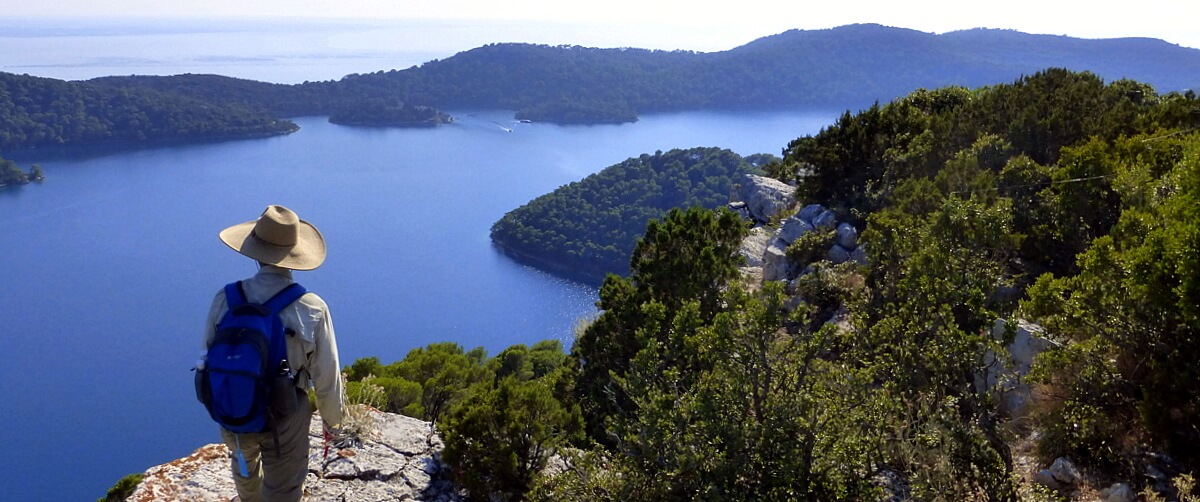by Dan Friesen
By 1999, I had been leading tours in Europe and the USA for about 7 years. Most trips, however, had been through central and northern Europe. Navigating this part of Europe taught me many things about similarities and differences between Old World and New World values. Coming from a Dutch/Germany background, however, I came to discover that I was much more at home in central and northern Europe than in areas of the globe I had yet to experience.
As I have since threaded my way through the intrigue of the almost limitless range of differences in how human beings see their world, I look back on a specific day and event as a turning point in my understanding.
We were nearing the end of an April 1999 tour that had started in Greece with a cruise through the Aegean Sea. We called the tour Greece: Birthplace of Western Civilization. At the end of the tour, we offered an optional extension that traveled to southern Italy. An anticipated highlight of the extension was a day trip by ferry to the fabled Isle of Capri.
Capri is a delightful Mediterranean island located about a 20-minute ferry ride from the coastal resort town of Sorrento, Italy at the outer edge of the Bay of Naples. It has a delightful climate friendly to lemon groves and sought out by Roman emperors as an escape from the summer heat and political intrigue of Rome. Villa Jovis, owned by Emperor Tiberius in the 1st century AD is still one of the islands major visitor attractions.
Having booked a morning ferry, we spent the better part of the day exploring this charming island, and I eagerly looked forward to returning by ferry to a different part of the boot-shaped Italian peninsula. The plan was to land in Amalfi and enjoy driving north for the breathtaking views offered along the fabled Amalfi Coast, stopping for dinner at a restaurant along the cliffs.
My expectations of sharing this memorable experience were completely dashed when they collided headlong with the reality of a cultural conundrum that took me completely by surprise.
Finishing our time on Capri, we returned to the ferry dock to meet our scheduled departing ferry. The arrival that morning had been routine, offering no foreshadowing of the surprises of the afternoon return trip. As we gathered, however, to queue for the ferry, we found that there was no queue, and that we were not alone.
It soon became apparent that 1) there were far more passengers on the dock than would fit onto one ferry and 2) there was no system in place supplying crowd control, no pylons to indicate where we would board, no markings on the deck of the pier indicating where to queue, no roped off entry points or lanes in which to queue.
As the ferry approached, an awful feeling formed in the pit of my stomach and began working its way up into my throat. Our group was inching forward, but there was no way to keep together. While the ferry docked and began offloading its passengers down a single file gangway, the crowd of outgoing passengers began surging towards the gangway. With zero crowd control mechanisms in place, the ginormous sea of bodies funneled from all points, bottlenecking impossibly onto the gangway.
These were scheduled ferries, and tickets were issued with departure times and destinations printed on them. It was obvious by now, however, that passengers with later departures were crowding forward to board this earlier ferry for which our group had time-stamped tickets and reservations. There were easily two or three times more people on the dock than would fit onto the ferry.
As the crew began admitting passengers aboard the single file gangway, bedlam reigned. The crowd devolved into pushing and shoving, everyone trying to move towards the gangway without losing their balance. The jostling was out of control and children were fearful and crying. It was not humanity’s finest hour!
Our local guide was a slender and savvy young Italian woman named Pina. She wormed her way to the gangway and, amidst the yelling and shoving and shouting, did her best to pull members of our group onto the gangway as crew members strove, with little effect, to check tickets and stem the avalanche of humanity bent on boarding their ship.
Meanwhile, I tried to act as sweep for the group, doing what I could to keep track of where they were in the sea of struggling bodies. The situation looked hopeless and the anxiety raging in my brain spiraled around the unwelcome possibility of our group being separated, part of them leaving on the ferry while some of us were left behind.
The capacity of the mind to process alternative stressors simultaneously is a miracle. Amidst the drama, I considered the lack of a Plan B and, given the chaos playing out before me, the unlikely scenario of successfully navigating challenging Italian ferry and bus logistics needed to rescue our stranded portion of the group.
Up ahead, Pina was having some success on the gangway. Bob, one of our group who made it aboard, looked back to see where I was in the crowd. I hollered to him “Try to save some seats”, which turned out to be a naïve and ill-fated request, nearly resulting in a fistfight when Bob doggedly tried to fulfill it.
To this day, I have no idea how, but we all made it aboard the ferry! I credit Pina and the hand of God. As we pulled away from the unsuccessful crowd of queue-jumpers on the Capri dock, the marked lack of seating made it clear that the ferry had, in fact, boarded more passengers than were ticketed. I worked my way to a relatively quiet corner of decking and spent the crossing to Amalfi decompressing. I was completely drained emotionally!
Our arrival in Amalfi was anticlimactic. We met our coach and continued north for dinner, the beauty of the drive and restaurant vista lost on the group. Everyone was still shaken. We’d endured a trauma for which none of was prepared.
The following morning, we followed our plan to visit the phenomenal archeological site of Pompeii, covered in volcanic ash and pumice by the AD 79 eruption of Mount Vesuvius. Still in recovery, I accepted Pina’s apology for the situation and my understanding of the disruptive differences in culture. She didn’t realize how little I understood those differences, and when we arrived at Pompeii, I marveled at the familiarity and warmth with which the local guide greeted Pina. They engaged in the double air-kiss and smothered each other with what was clearly enthusiastic compliments and well wishes.
The seeds of understanding were planted that day. They have yet to fully flower, but I began that day to realize how different values in a culture play out in day-to-day living.
Ferry crews have been plying the waters between the mainland and the Isle of Capri since time immemorial. The issue of dealing with unruly crowds and queue jumpers had to be as old as the Roman Empire. Yet an objective observation of the situation we endured would suggest that it was an anomaly, that this must have been the first time so many people had competed for so few seats on a ferry. Otherwise, surely problems would have been identified, solutions considered, and systems analyzed and implemented to spare everyone involved the unpleasantness we had just experienced.
As I watched Pina and her guide colleague greet each other so warmly at Pompeii, I began to realize that this cultural conundrum had nothing to do with intelligence or problem-solving ability or character, all explanations to which frustrated northern races have resorted. It seemed rather to be rooted in different values.
At least in this part of Italy, relationships and connecting apparently mean far more than the smooth execution of boarding a ferry. Emotions expended during the chaos on the ferry dock are accepted as a normal part of life, and they seem to be more than offset by positive emotions stoked by other connections during one’s day, whether greeting a colleague or enjoying an espresso during a siesta (called riposa in Italy) or enjoying an friendly phone call.
That day on Capri was not the end of my journey of cultural understanding, but rather the beginning. I am still on the path, but the drama of that Cultural Conundrum on Capri forced me to see disruptions of cultural differences in a more objective, and hopefully more constructive light.
In intervening years, attempting to unravel these riddles has become one of the most anticipated and rewarding delights of travel.
Email [email protected] with any questions or comments.

